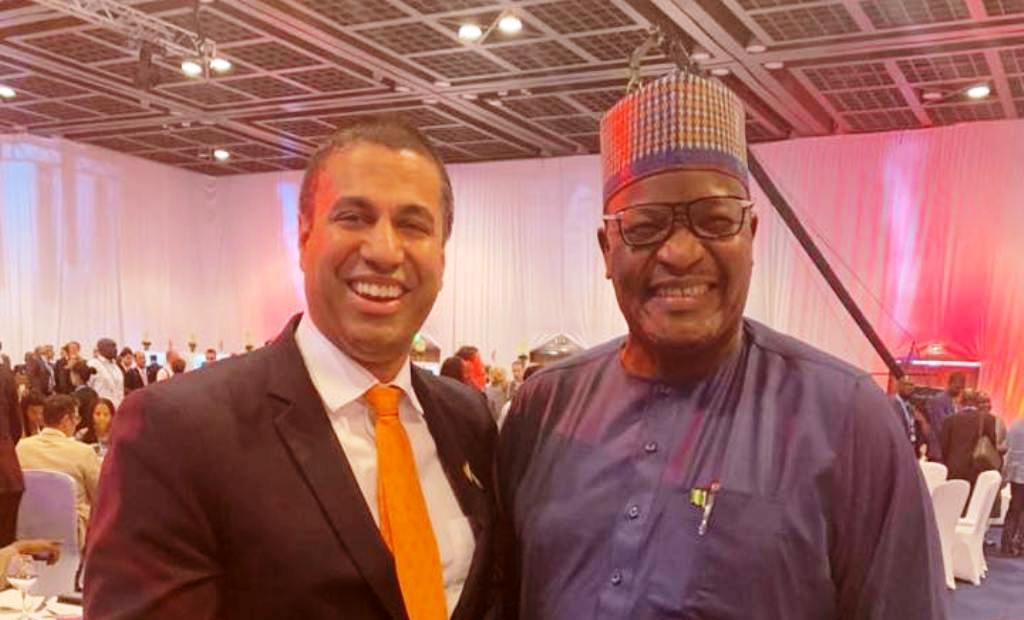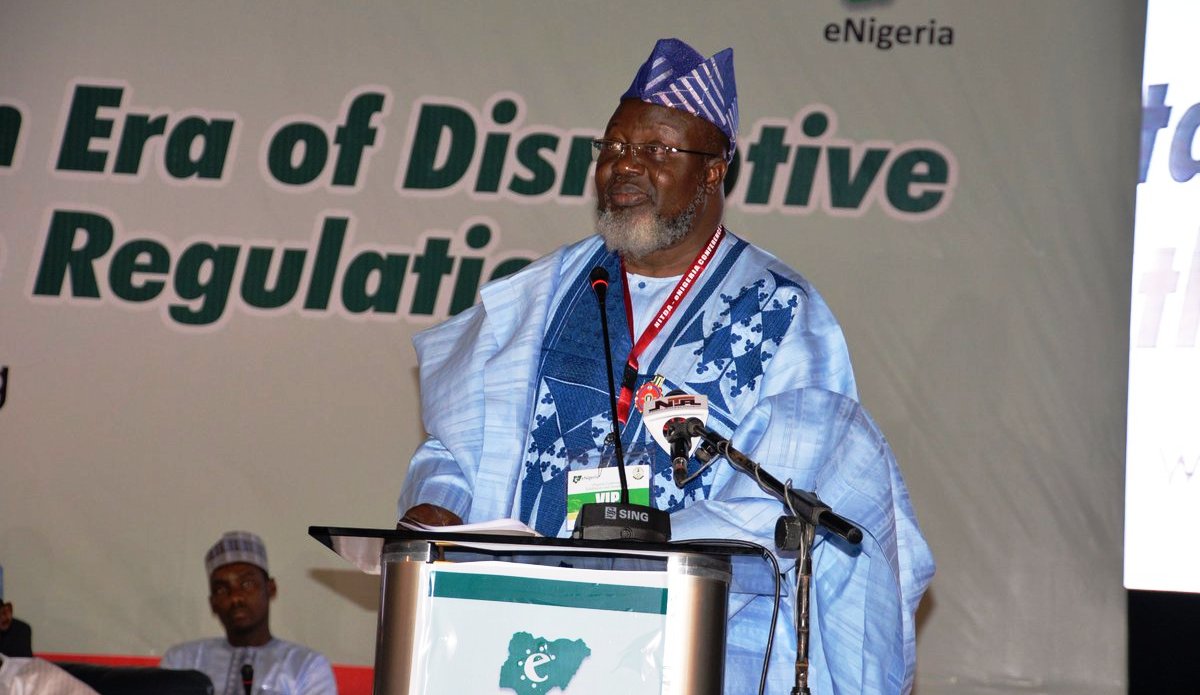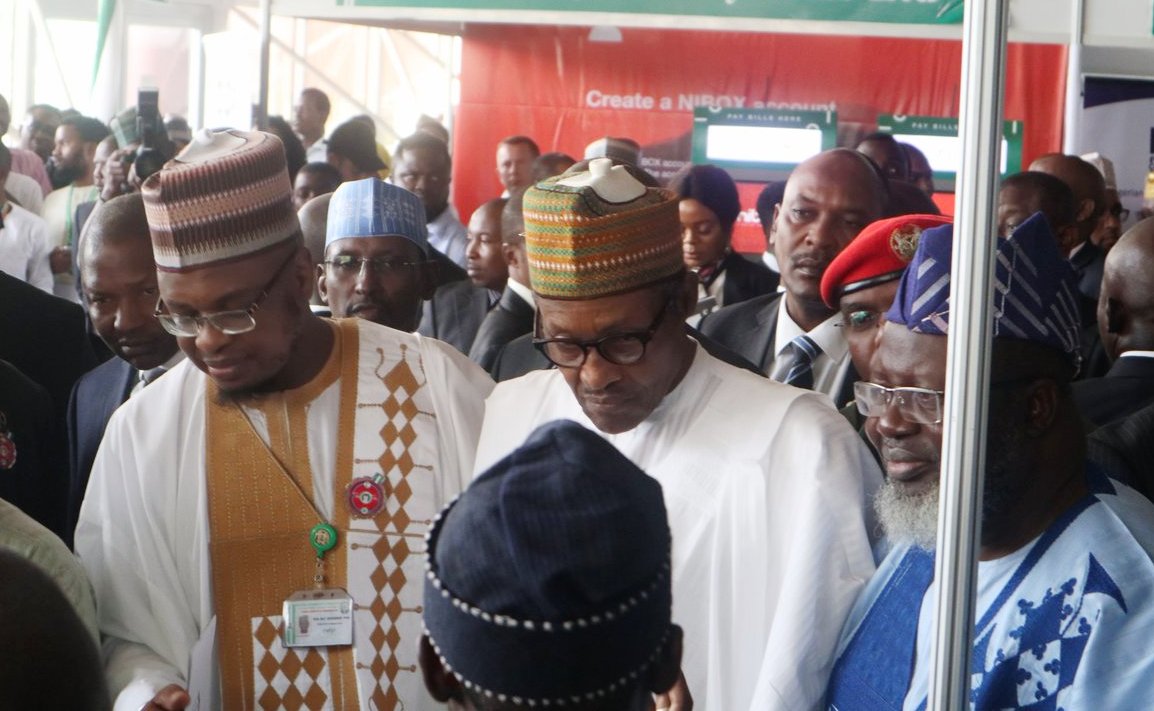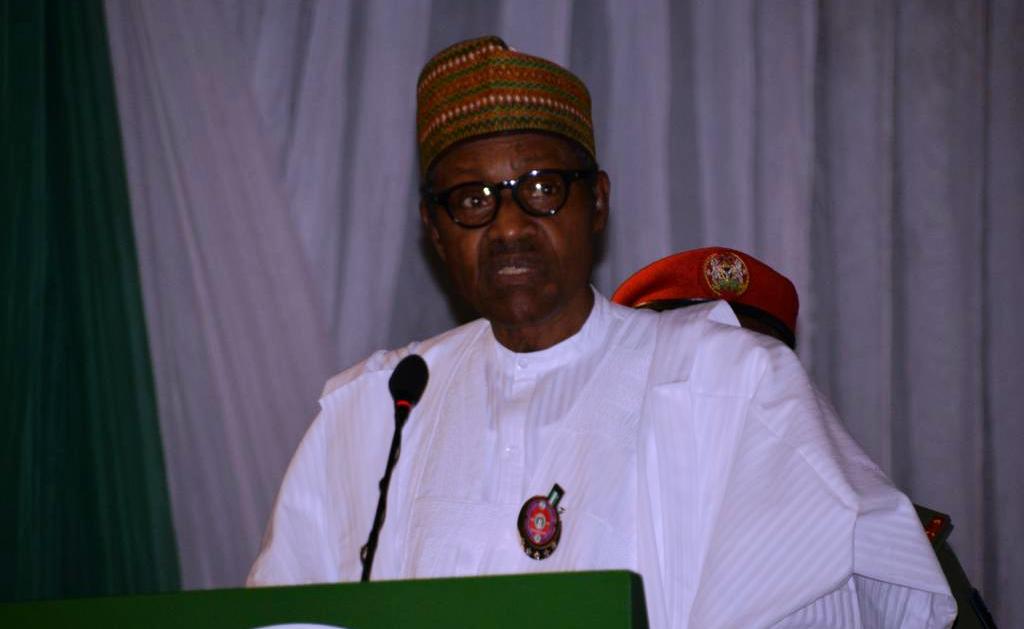Director General of the National Information Technology Development Agency (NITDA), Dr Isa Pantami, has lauded President Muhammadu Buhari for the issuance of the Presidential Executive Order 003 and 005.
TheNewsGuru (TNG) reports Pantami lauded Buhari in his remarks at the opening of the three-day 11th edition of e-Nigeria International Conference and Exhibition organized by the NITDA at the International Conference Centre (ICC) in Abuja.
The conference has “Promoting Digital Economy in an Era of Disruptive Technologies through Effective Regulation” as its theme.
The Executive Order 003 mandates all ministries, departments and agencies to give preference to locally manufactured goods and services in their procurement of information technology services, in order to strengthen its implementation as well as provide clear policy directions.
Presidential Executive Order 005 which was also issued in February, is part of the administration’s deliberate efforts and strong commitment at strengthening the role of Science, Technology and Innovation in the country’s socio-economic development.
According to him, Federal Government is working to reposition the country from a resource-based to knowledge-based economy through the deploying of Information Technology.
Pantami disclosed that over N30billion had so far been saved by the federal government following the implementation of its IT and ICT policies and programme.
He said “the Information Technology sector under the administration of President Buhari has enjoyed tremendous support by approving Executive Orders to encourage indigenous products.
“Through the approval of those executive orders, the IT sector has contributed 12.41 per cent to the Gross Domestic Product in the first quarter of 2018.
“In the second quarter, IT sector contributed 13.63 per cent to the GDP and from Dec. 31, 2017 to Aug. 31, 2018, NITDA was able to save over N30 billion for the Federal Government”.
He added that the agency was repositioning the IT sector through digital inclusion, IT regulation, digital job creation, cyber security, digital capacity building, among other intervention strategies.
Declaring the conference open, President Buhari commended the NITDA, while warning that the Federal Government would sanction public establishments found to have breached its IT Clearance policy.
It will be recalled that in April 2006, the Federal Government directed that all MDAs planning to embark on any IT project should obtain clearance from the National Information Technology Development Agency (NITDA) for proper guidelines on the purchase of local IT products and services.
NITDA, therefore, has a mandate to clear IT projects and procurement of IT products and services in MDAs for quality service delivery.
Buhari said that the warning became necessary in view of his administration’s determination not to fail in its quest to eliminate corruption in government businesses and in the wider society.
He noted that NITDA’s initiative focused on the Registration of IT Contractors and Service Providers in collaboration with other regulatory bodies with special emphasis on competencies.
According to him, this will ensure the delivery of quality IT projects, as well as facilitate the development of indigenous IT companies in line with global best practices.
“You may also recall the remark about NITDA’s efforts at enforcing Federal Government’s directive on ensuring that all ICT projects in the country are cleared by it before implementation.
“This will ensure that government’s ICT procurements: Are transparent; Aligned with government’s IT shared vision and policy; Lead to cost savings through promotion of shared services; avoid duplication; ensure compatibility of IT systems and improve efficiency in government business; enforce the patronage of indigenous companies where capacity exists and uphold the highest standards for service delivery.
“In this administration’s efforts at ensuring full realisation of these objectives, a new circular was issued in August this year, to reiterate this directive.
“NITDA is expected to work with all relevant government agencies to ensure full compliance with this directive. Defaulters of IT Clearance among the public establishments are to be reported to government.
“We are serious about fighting corruption. We must not fail in our quest to eliminate corruption in government businesses and in the wider society.’’
The President lauded NITDA’s work on the Nigerian ICT Innovation and Entrepreneurship Vision that focuses on the development of Digital Infrastructure, Education Reform, Skills Development and Research and Development as well as supporting the ecosystem.
He stressed the need for the public service to be highly competitive, innovative and digitally-enabled to deliver public services and effectively drive government programmes and policies.
Buhari observed that NITDA and other relevant government agencies had taken this up by creating the enabling environment through the development of policies, frameworks, standards and guidelines.
He said, “I am aware that some of these regulatory instruments have been subjected to critical scrutiny and revision through a series of stakeholder engagements.”
He, however, maintained that efforts should be intensified to make them public and to sensitise the public about the value of the regulatory instruments.
The President noted with delight the enforcement of the use of the policy on Treasury Single Account (TSA), the Integrated Payroll and Personnel Information System (IPPIS) and the Bank Verification Number (BVN) and the impact they had made on the administration’s public financial management reforms.
Buhari added that the consolidation of accounts and elimination of ghost workers that resulted in a combined monthly savings of about N24.7 billion, the TSA facilitated the recovery of huge sums of money, including the N1.6 billion that was recently recovered from a single account.
He said the policy initiatives had reinforced his administration’s fight against corruption by ensuring transparency and accountability in government business transactions.
According to the President, the success of his administration’s Social Investment Programme, which is seen in many quarters as the largest and most ambitious social safety net programme in recent history, relies heavily on the application of ICT.
He observed that the components of programmes such as the N-Power, Government Enterprise and Empowerment Programme (GEEP), the Home Grown School Feeding Programme (HGSFP) and the Conditional Cash Transfer (CCT) all leverage on ICT.
He disclosed that the programmes had so far benefited over nine million Nigerians.
The president revealed that the NITDA, in collaboration with the National Social Investment Office (NSIO), was coordinating federal government’s initiative of establishing eight Innovation Hubs.
He added that the eight Innovation Hubs would be sited one in each of the six geo-political zones and one each in Lagos and Abuja.
President Buhari explained that the purpose of establishing these hubs was to facilitate digital capacity building for immediate employment, entrepreneurial skills development, job and wealth creation.
“All these are aimed at promoting the digital economy in an era of disruptive technology through effective regulations,’’ he said.
The president, therefore, enjoined the Conference to come up with “innovative ideas, workable and implementable recommendations that would help and enhance government’s efforts at creating the enabling environment for the promotion of the digital economy in an era of disruptive technologies, considering our peculiarities as a country.’’




